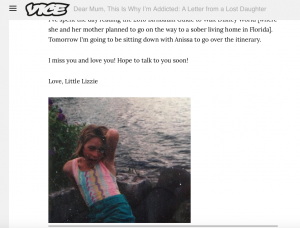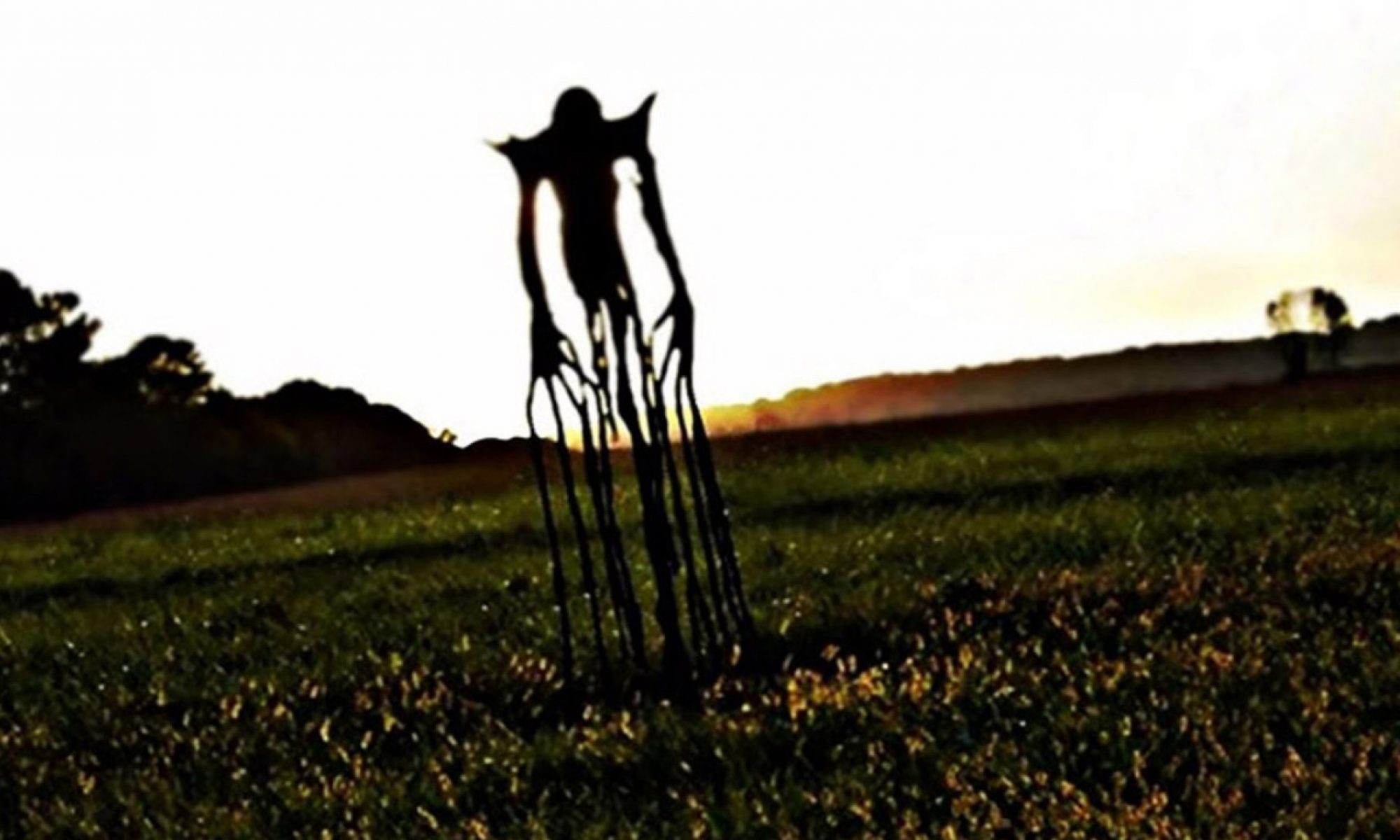While reading, “Larger Than Life: Digital Resurrection and the Re-Enchantment of Society,” by Alexandra Sherlock, I was struck by the example that Sherlock used of Bob Monkhouse’s “resurrection” for use in a campaign for prostate cancer research. However, instead of celebrities that were famous for their work before death, I thought of when public awareness campaigns are formed around the deaths of ordinary people. Some of these stories go viral and the deceased become famous after death. An example of this I thought of was a letter that went viral this fall in which a woman shared a letter her drug addict daughter sent to her attempting to explain her addition to her mother. In reading the letter, I found it to be a compelling call for empathy and for the necessity of further access to care for those struggling with addiction. However, at the same time, I felt a little uncomfortable reading the letter. Sure, they had changed the woman’s last name, but otherwise this was an incredibly personal account of her life that she did not consent to being broadcast across the internet. There are many similar campaigns like this from parents, families, or friends where names are not changed and they become famous after their death for mistakes made during their lives. While undoubtedly these campaigns have the potential to make a positive difference in many lives, I can’t imagine I would particularly want details of my private struggles to be used without giving it the ok. Moreover, in contrast with the celebrities described in Sherlock’s piece, I can’t imagine laws being put in place that determine the fates of these people’s stories after their lives since money isn’t likely involved. I also can’t imagine that families already dealing with a crisis like alcoholism or addiction have much time for conversations about how private they wish their stories to remain if they are no longer around to lay claim to them.

Works Cited
Elliot, Elizabeth. “Dear Mum, This Is Why I’m Addicted: A Letter from a Lost Daughter.” Vice, 3 Oct 2016. www.vice.com/en_au/article/heroin-addiction-needles-exchange-lost-daughter-dear-mom.
Sherlock, Alexandra. “Larger Than Life: Digital Resurrection and the Re-Enchantment of Society.” The Information Society, vol. 29, no. 3, pp164-176.
